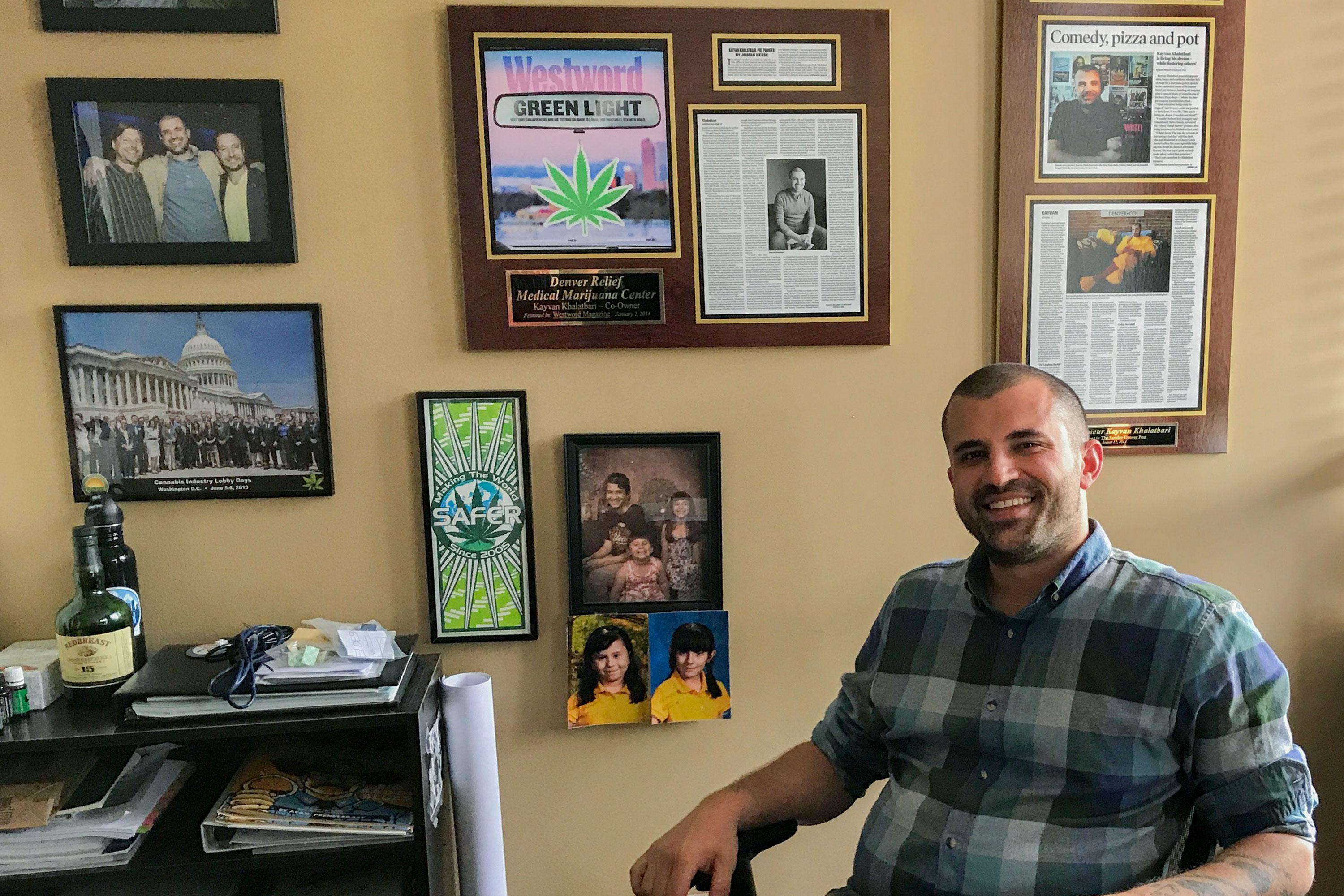

After working countless hours in the marijuana industry, the time finally came for Taylor Rosean to start his own business. When he and his friends put their heads together, the first thing that came to mind were video games. Specifically a marijuana vape bar paired with an arcade.
Laughing over coffee, Rosean says that it goes without saying they're "going to have Pacman."
His partner Jason Galeon chimes in with suggestions "like maybe some Mortal Kombat, a little Street Fighter, definitely want some shooting games in there."
In a time where adult-themed arcades — think Denver's 1-Up — have enjoyed runaway popularity, Rosean and Galeon contend that games alone won't be enough to attract customers. They want to be marijuana friendly.
"It is a little bit of a stereotype to put stoners immediately at an arcade, but also I kind of wanted to create the most welcoming environment possible for stoners of all kinds," Rosean says with infectious excitement. Their hope is to get Denver Vape and Play off the ground in 2018. A year ago, a business like this would never have been possible.
Denver voters approved ballot Initiative 300 in 2016, allowing the city to create a social marijuana use program. A four-year pilot program launched quietly in late August, after months of rulemaking and preparation by the Department of Excise and Licenses. Rosean says the neighborhood groups he's spoken to have been supportive, which is important since it's one of the requirements found in the initiative and a detail hammered out by a 20-person workgroup during the rulemaking process.
Progress on licenses has been slow, with several fits and starts. Ashley Kilroy, director of Excise and Licenses, acknowledges the rules are strict, but anyone hoping for an Amsterdam of the Rockies has not paid attention to the deliberate pace of marijuana regulation. The recreational scene is still young, she says, while pointing out that her office has "done a great job by being moderate, by being thoughtful in implementing these rules, by balancing the interests of everyone."
That balancing act tends to mean that no one gets everything they want.
"If people are mad at you on all sides, you probably did get it right," Kilroy jokes.
In fact, perhaps no one is angrier than one of the leaders of the original social use campaign for Initiative 300, Kayvan Khalatbari. Beyond that campaign, Khalatbari owns several businesses, many connected to marijuana. He also happens to be a candidate for Denver mayor. It's his contention that many of the decisions made by Kilroy's office, and the final rules, go against the initiative and "the will of the voters that voted for it."
He claims regulators have been doing everything possible to limit social use in businesses. He points to a decision by the state Liquor Enforcement Division, handed down shortly after the ballot initiative was certified, that barred liquor license holders from applying for a social marijuana license.
Khalatbari also decries distance restrictions that keep social marijuana licenses outside of 1000 feet of schools, public recreation facilities, daycares or drug and alcohol treatment facilities.
Initiative 300's original text only contained such a restriction for schools.
"They made it a thousand feet from parks, and from rehabilitation centers, and from all these other entities that were never part of the initiative, they weren't what people voted on, and they've made it such that we're almost restricted from opening any of these where we really need them," he says.
To him, the demand for marijuana social use businesses would be in high density neighborhoods, as well as in areas where tourists tend to gather. All the better to prevent people from smoking in streets and alleyways, which Khalatbari says was one of the reasons for the original initiative.
It's worthwhile to note that Khalatbari had a representative that was included in the workgroup. His employee, Emmett Reistroffer, voiced approval for some of the measures born out of the group's work, but both he and Khalatbari were in agreement on opposition to 13 specific items.
Khalatbari claims that the rules intentionally ensure that few social licenses will be issued, if any at all. That's why he says he plans to file a lawsuit against the city in the coming weeks. While he slams the rules for being too restrictive, others lament that they're not restrictive enough. Like Rachel O'Bryan.
She was the opposition to Initiative 300, worried that making marijuana use more visible would adversely impact children. O'Bryan was also invited to be a part of the workgroup that developed the rules. While she lauds the city for what she calls an even-handed approach to the rulemaking, she wishes certain measures made it into the final rules.
"I would have liked to have seen a buffer zone from homes," she says, noting that in certain areas of the city, businesses tend to butt against residential areas.
She concedes that in such a grand balancing act, she wasn't going to get everything she wanted either. It wasn't simply balancing the needs and desires of 20 people on various sides of the marijuana legalization debate, but also in adhering to state laws. There's also the caution necessary in crafting yet another regulatory framework around marijuana in the Trump era, with an attorney general who has sent a clear message to recreational states like Colorado: I'm watching you very closely.
O'Bryan does, however, have one big gripe. To her, one big issue was left out of the conversation. "Amendment 64 says there's no open and public consumption," she says.
"So, that we're doing consumption in businesses, I would argue that Initiative 300 violates the constitution of the state. But, we're going forward with allowing businesses that are open to the public, to have consumption."
To O'Bryan's point, the whole idea of social use, and new businesses like Vape and Play, is uncharted territory. Nobody in the city, the state and even the country knows where this is going, only that the fight is far from over.
Editor's Note: An earlier version of this story mistated the business relationship between Emmett Reistroffer and Kayvan Khalatbari as partners. Mr. Reistroffer is in fact an employee of Mr. Khalatbari. This story was also updated to clarify Emmett Reistroffer's role with the city's workgroup and the rules they developed.








